Peace talks currently won’t lead to lasting peace – civil society sector
During a discussion at the Media Center Ukraine–Ukrinform, Ukrainian peacebuilding experts presented a joint statement “Ukraine Peace Appeal: Towards A More Informed Solidarity” which was initiated by the Community of Mediators and Dialogue Facilitators of Ukraine together with the Ukrainian Feminist Network for Freedom and Democracy. The document was signed by more than 100 civil society organizations.
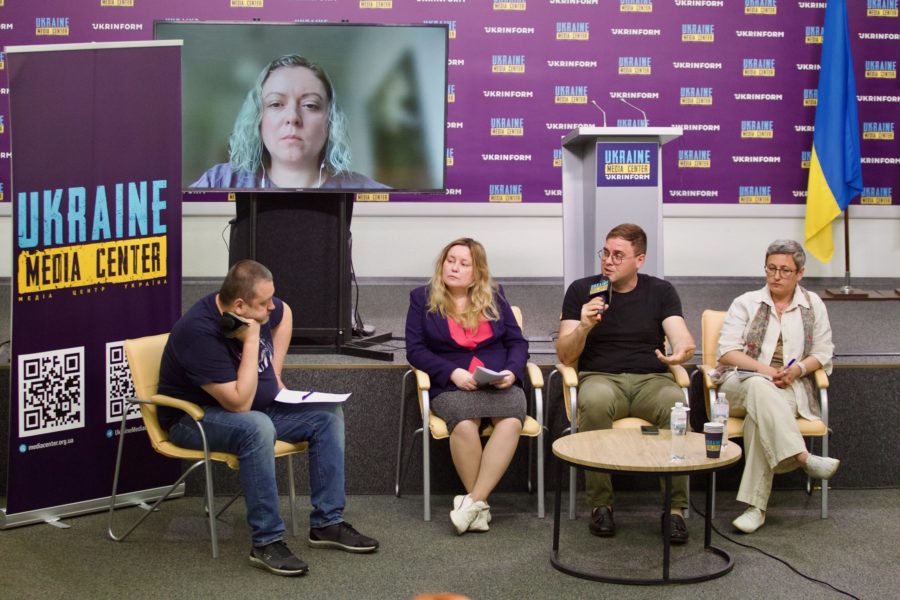
Currently, Russia uses triggers, historical and social traumas of other peoples, wrapping them in pseudo-peace narratives, to justify its imperial ambitions and limit security assistance to Ukraine.
Now a return to the tools that Russia used at the beginning of the full-scale invasion to weaken Ukraine’s position on the international stage is observed. For example, the proposal for peace talks, which corresponds to the Russian narrative at the moment, provides for the end of the war while leaving occupied Ukrainian territories to Russia.
“If we talk about the dynamics observed over the past 15-20 years, it shows that such tactical calls for negotiations are used as pauses to prepare for larger-scale aggression or aggression of a different type,” says Maksym Yelihulashvili, a member of the board of the Institute for Peace and Common Ground which is part of the Ukraine 5 AM Coalition.
He notes that in recent months, a series of events have been organized around the world, including the International Summit for Peace in Ukraine which is scheduled for June 10-11 in Vienna. Thanks to the synchronous position of peacebuilding experts, activists of the feminist movement, mediators, dialogue facilitators, mental health specialists, human rights defenders, and scientists, it was possible to at least begin to convey an opinion about what kind of “peace” is offered to Ukraine at this event – “to stop the supply of weapons to Ukraine and immediately sit down at the negotiating table.”
“In fact, it took Russia a year to return to global platforms with this idea. We are facing a new round of challenges related to propaganda and disinformation which is getting stronger. The latest tragedy, the Kakhovka HPP explosion, shows that the message ‘not everything is so clear-cut’ is working and it can intensify talks about negotiations already on the terms of the aggressor state. Here, it is important to have a consolidated position to prevent this kind of dimension and interpretation of the negotiations,” Yelihulashvili adds.
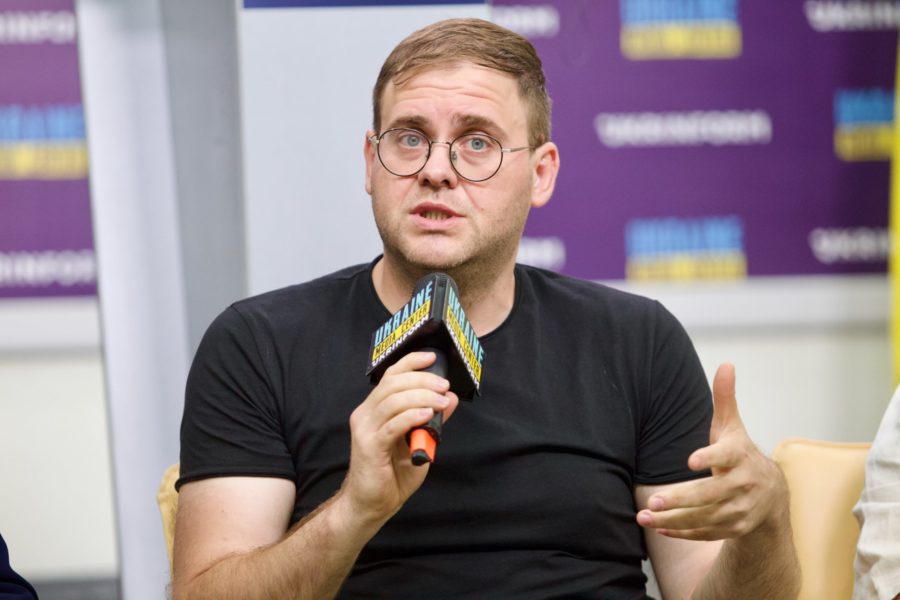 Maksym Yelihulashvili
Maksym Yelihulashvili Iryna Eyhelson, candidate of psychological sciences, senior researcher at the Mediation and Dialogue Research Center of the National University of Kyiv-Mohyla Academy, believes that the ceasefire together with the cessation of security assistance will lead to a larger escalation in the region.
“We see that peace is not established in the territories occupied by Russia either for nine years or since 2022. Instead, there are terrible stories of human rights violations and the most serious war crimes. In the situation with the explosion of the Kakhovka HPP, the occupiers do not provide any help to the people who are being flooded. We can see that ceasefire on the lines that exist now will not bring any kind of lasting peace. And our appeal is precisely about this and about the fact that the termination of support to Ukraine, in particular, with weapons, is a betrayal of Ukraine’s interests,” Eyhelson says.
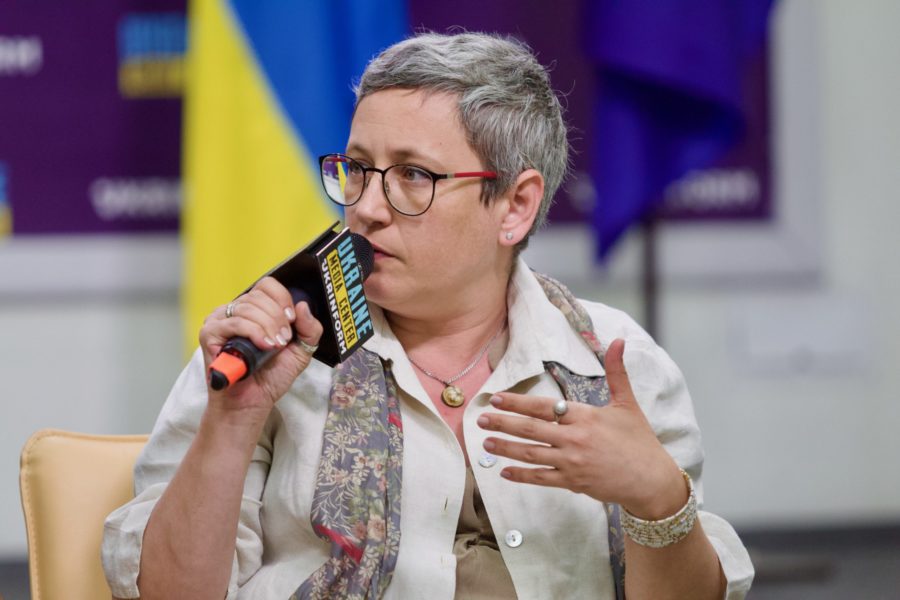
In parallel with the call to continue supporting the provision of arms, Ukraine makes unprecedented efforts to find peaceful ways to resolve the situation. According to Olena Zakharova, head of the Centre of Public Initiatives “Ideas for Change”, coordinator of cross-contact dialogues, this is true not only for 2022-2023.
“Ukraine inherited the world’s third largest nuclear potential – 17% of the Soviet Union’s nuclear weapons were located in its territory. But Ukraine undertook to abandon it and joined the Treaty on the Non-Proliferation of Nuclear Weapons. Since the beginning of the 2000s, the Russian Federation has been putting pressure on Ukraine: the conflict over Tuzla Island, gas wars, economic and political pressure, pressure during presidential elections. Ukraine tried to resolve all these conflicts and tensions peacefully. The Orange Revolution was peaceful. And in 2014, Ukraine refused to defend Crimea by military means. The development of many dialogue processes and programs began, first in civil society, and then at the state level. Even the Ukrainian National Center for Peacebuilding at the Ministry of Reintegration was created,” Zakharova comments on the past few decades.
She also mentions the Minsk agreements and the peace plan of President Volodymyr Zelensky, announced last autumn at the G19 Summit, all ten points of which are of a peaceful nature. Against the background of demands for support with weapons, Ukrainian peacebuilding experts continue to work towards establishing a dialogue within Ukrainian society and emphasize the importance of continuing humanitarian negotiations with Russia, for example on the exchange of prisoners of war or the return of children deported from Ukraine.
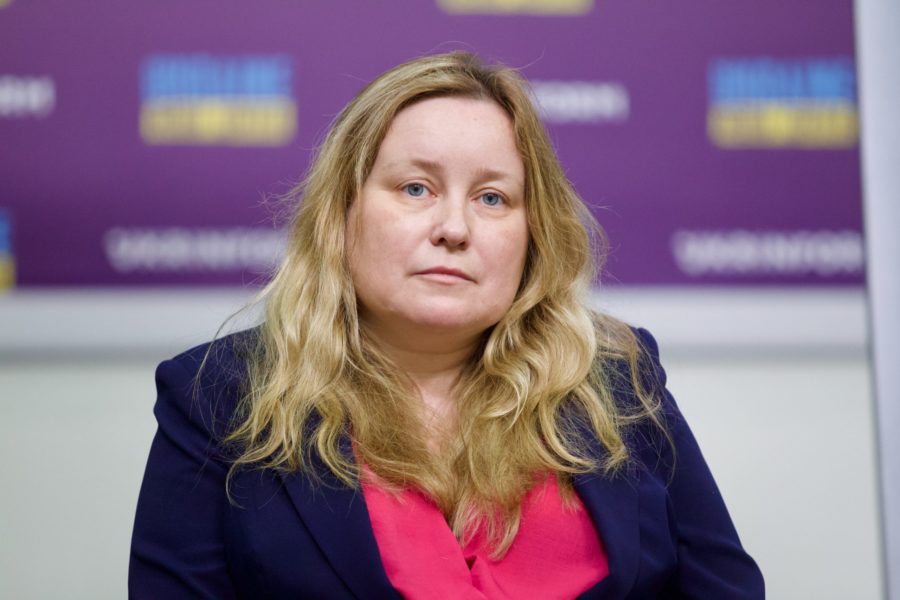 Olena Zakharova
Olena Zakharova “Let’s imagine that political negotiations on ceasefire are held today. Will they lead to lasting peace? Absolutely not. They will lead to the frozen conflict, and it is quite likely that after some time a new generation will grow up in Russia, which, as part of a totalitarian imperial state, will again be involved in Russia’s new imperial wars in 10-15 years, as, for example, happened with the Ukrainians in Afghanistan,” Zakharova emphasizes.
War has a great impact on the civilian population, particularly on women, children and vulnerable groups, says Oksana Potapova, co-founder of the Ukrainian Feminist Network for Freedom and Democracy, peace and security researcher, and women’s rights activist.
“The continuation of the war worsens infrastructure, increases the burden on women in terms of care work, pushes women out of public, political, and economic life. These are important arguments. But, unlike other types of armed conflicts, such as civil wars, where turning them into a peaceful phase actually makes it possible to restore life in the country, this argument does not work in our case. The cessation of armed resistance now leaves Russia as a state that has been promoting anti-democratic policies for a decade, deliberately attacking women’s rights, LGBT rights, feminist movements, and freedom of speech and assembly more broadly. This policy also applies to the territories that were occupied and are under the control of the Russian Federation. We see that safety, protection and welfare of the civilian population are not secured in the territories that are not controlled by Ukraine,” Potapova continues.
She warns: cessation of armed resistance now can only worsen the condition of the civilian population and human rights situation in the occupied territories.
Also, the discussion participants expressed the opinion that Ukraine should grow up and be more specific in the formulation of its arguments as it is difficult to achieve the desired result in the interests of Ukraine relying only on the emotional component. To find allies at the global level, weighted and effective arguments based on the logic of actions of international bureaucratic systems and spoken in a language they understand are necessary.
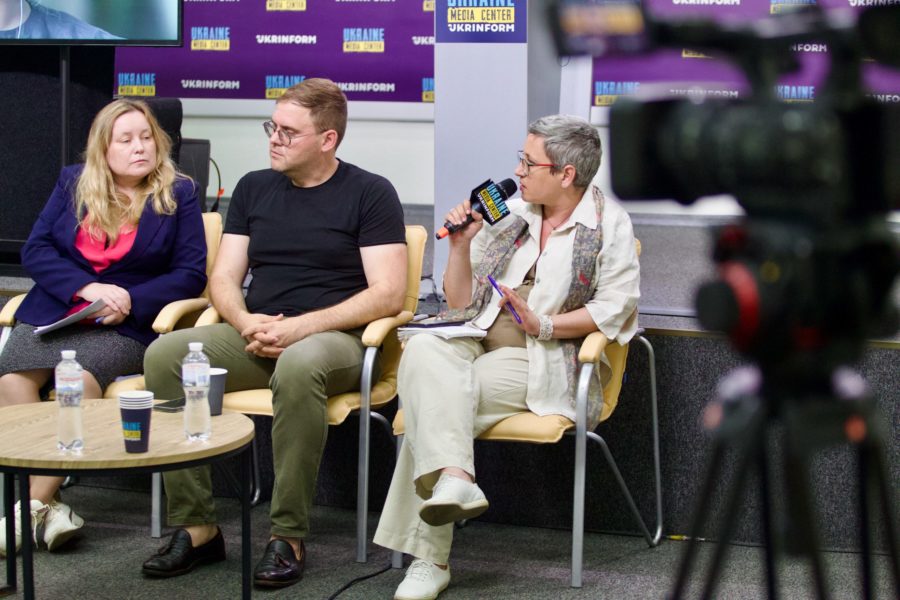
The situation in Ukraine is a symptomatic manifestation of the accumulated global problems in the security sector and humanitarian interventions, as well as in approaches to the settlement of armed conflicts and peacebuilding. Given this, Ukraine itself can become the actor that not only highlights the problems but is also ready to become a leader in the transformation and modernization of the existing system.
For example, Ukraine seeks fairness and demands it from foreign partners, particularly in matters of justice. However, the country still has not ratified the Rome Statute of the International Criminal Court. It is about conscious leadership: whether Ukraine wants to become a voice for the Global South in the context of justice and peacebuilding, whether it wants to become a flagship of changes in the context of global justice as a country that demonstrates that its justice system can be an effective tool for holding the guilty to account. It is worth combining the efforts of the state and expert civil society for the sake of such leadership.
Watch the full stream in Ukrainian or English.
If you have found a spelling error, please, notify us by selecting that text and pressing Ctrl+Enter.















